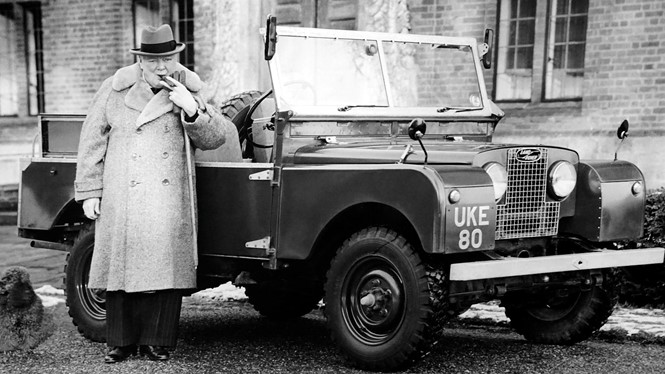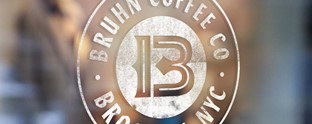Brands have more personality than politicians

Seven weeks ago, on 18 April 2017, current Conservative prime minister of the UK, Theresa May, called a snap general election. The results will be clear by early morning on 9 June; the leader of the next UK government assumes office the same day. However, a study recently carried out by jones knowles ritchie (jkr) and YouGov reveals that whoever stands outside the front door of Number 10 on Friday is likely to be perceived by the public as showcasing weak charisma.
During the last week of May, London-based strategic brand agency jkr and market research firm YouGov carried out an internet-based survey of 2,024 UK adults, with all those surveyed eligible to vote in the 2017 election. While Jeremy Corbyn led the poll, it was with a mere 23%. The Labour leader is closely followed by current prime minster May on 20%, Liberal Democrat leader Tim Farron on 9% and leader of Ukip, Paul Nuttall, on 6%. In fact, says the survey, brands considered by consumers to be ‘everyday,’ such as Vaseline or KitKat, score higher for personality than any leader.
Despite respondents in England and Wales being unable to vote for the Scottish National Party (SNP), first minister of Scotland and SNP leader, Nicola Sturgeon, achieved a 28% charisma rating – 4% higher than Corbyn, her closest English rival. However, evidence suggests that this lead might be diminished; when compared to perceptions of product brand personality, Sturgeon tails behind.
Lee Rolston, strategy director at jkr, says, “We live in a media ‘personality’-driven world, where connection with voters is heavily influenced by what people think of politicians and what they see of them. Just like brands, they must appeal to us on an emotionally-engaged level and stand out from the competition.”
For comparison, jkr compared charisma scores of the party leaders against those of household brands, many of which are used every day. Some of the most startling statistics transpired in the food and drink category, where popular brands were purported to be three times as charismatic as Theresa May. Chocolate brand KitKat, peanut-based chocolate bar Snickers and leading smoothie brand Innocent achieved 59%, 61% and 63% charisma scores respectively, to May’s 23%.
Rolston says, “Big name brands – the ones that we have in our homes and that we use every day – typically index at over 60% when we look at charisma. Our political party leaders don’t even hit half that. We’re suffering from a very real lack of charismatic conviction when it comes to our political leaders.”
Skincare brand Vaseline achieved 48%, making it twice as charismatic as Corbyn. Global fast food chain McDonald’s is apparently five times more charming than Farron, at 52%. And, most telling of all, nation’s favourite Walkers Crisps achieved a magnetism rating of over 10 times that of Ukip leader Paul Nuttall. Indeed, Nuttall – the third Ukip leader in less than a year – fares badly compared to his predecessor Nigel Farage. In the 2015 iteration of the poll, Farage achieved a charisma rating of 41%.
“Look at someone like Farage – you might completely disagree with him on his policies, but he is the kind of political figure who knows how to command attention and make people sit up and listen,” continues Rolston. “That is what charisma is about: natural magnetism and connecting with your audience, whether you are a brand, a business or a public figure.”
Rolston says that compared to the personality-driven politics of the last general election, held just over two years ago, this year’s cohort falls somewhat flat in generating the same level of magnetism. Yet this was arguably the results of more partisan views. Results of the same survey, held in 2015, showed then-prime minister David Cameron settling at 24%, with Ed Miliband and Nick Clegg achieving only a 16% charismatic rating. However, among voters for each party, it was a different story. In 2015, 54% of potential Tory voters saw Cameron as charismatic, against May’s current 45%. In the same poll, Nick Clegg – a man once famed for his bouncing geniality – scored 41% among Liberal Democrats. Yet latest Liberal Democrat leader Farron falls flat, with just 17% – under half.
Indeed, Jeremy Corbyn is the only current leader surpassing the charisma rating of the party’s 2015 leader, leading Miliband’s 39% charisma rating to a more impressive 48%.
Whether these results are indicative or indeed relevant to tomorrow’s nationwide vote remains to be seen. However, brand charisma and injecting personality into the customer face of a corporation is paramount to retaining consumer interest. Capturing brand loyalty and encouraging customers to not switch to potentially better offers requires nuanced, strategic decision making and creating enough depth that customers can connect. Much like frontline politics, brand magnetism can make or break a voter’s, or consumer’s, loyalty.












